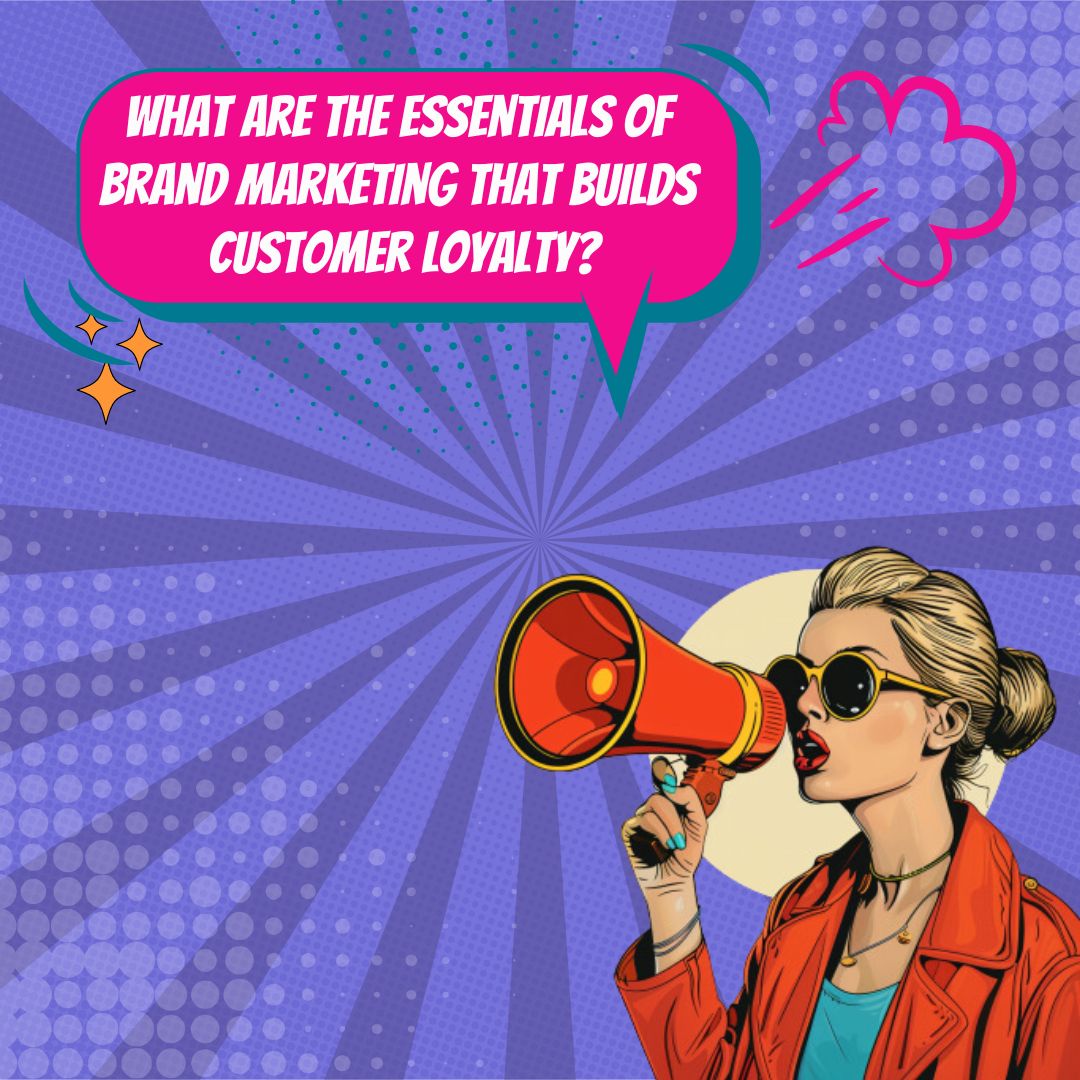Key Takeaways
✅ Consistency and Authenticity are Crucial: Establishing a strong brand presence requires uniformity in messaging and visual elements across all channels. A staggering 89% of shoppers stay loyal to brands that share their values, emphasizing the importance of authenticity. Brands that remain true to their core, addressing customer needs with transparency, lay the foundation for lasting loyalty. For businesses, this means auditing your communication for consistency and always being genuine in your interactions.
✅ Customer Experience and Engagement Drive Loyalty: An impressive 73% of consumers point to customer experience as an important factor in their purchasing decisions. This experience transcends the product itself, encompassing every touchpoint a customer has with the brand. Moreover, engaging customers through social media, loyalty programs, and inclusive marketing can turn satisfied customers into brand advocates. To leverage this, companies should prioritize customer feedback, create immersive experiences, and foster communities around their brands.
✅ Brand Recognition and Values Alignment are Key: With the market more crowded than ever, 77% of consumers choose brands that reflect their personal values. This highlight the vital role of brand recognition and the alignment of brand values with those of their target audience. Crafting a recognizable brand persona that resonates with and reflects the values of your audience can significantly boost loyalty. Businesses should focus on transparent communication and socially responsible initiatives that reflect their commitment to shared values.
Introduction
Why do some brands manage to win hearts and minds, commanding unwavering loyalty where others do not? The Importance of Brand Marketing in Building Loyalty has never been more paramount in today’s fiercely competitive market. At the core of successful brands lies a deep understanding of brand loyalty—a customer's consistent preference for one brand over others, rooted in trust and satisfaction.
Brand loyalty doesn't just happen; it's the fruit of strategic, thoughtful marketing that connects with individuals on a personal level. This article unpacks the transformative power of brand marketing in cultivating a loyal following, exploring elements like emotional connection, consistent quality, and personal relevance. We delve into cutting-edge strategies and real-life examples to illustrate how brands can optimize their marketing efforts for maximum ROI and ROAS, transforming casual shoppers into lifelong supporters.
Stay tuned as we reveal actionable insights and pioneering information that could redefine how you think about brand loyalty and customer devotion.
Top Statistics
| Statistic | Insight |
|---|---|
| Customer loyalty management market value: Over $5.5 billion, expected to surpass $24 billion by 2028. | The exploding market value highlights the growing importance of loyalty programs in securing long-term business success. |
| 83% of consumers expect personalized experiences from brands they are loyal to. | This finds brands in a race to provide not just products, but tailored experiences that resonate on a personal level with their audience. |
| Over 80% of American customers exhibit loyalty to brands. | Reflects a robust loyalty landscape in the U.S., underlining the importance of enhancing customer relationships. |
| 95% of customers say trusting a company increases their loyalty. | This statistic serves as a strong reminder that building trust is a cornerstone in nurturing lasting customer loyalty. |
Understanding Brand Loyalty and Its Importance
Brand loyalty is like having a good friend that you can always count on - it represents a customer's unwavering preference for one brand over its competitors. This kind of loyalty doesn’t happen overnight. Instead, it grows from a customer's positive experiences, trust in the brand, and the belief that they're getting great value for their money. But why does this matter so much for businesses?
The power of brand loyalty lies in its ability to drive business growth through repeat purchases and word-of-mouth recommendations. When customers feel a strong connection to a brand, they're not just more likely to keep coming back—they're also more likely to bring new customers with them, turning into true ambassadors for the brand. This kind of loyalty can significantly reduce marketing costs while increasing the lifetime value of each customer.
So, what builds brand loyalty? At the heart of it all is emotional connection. When customers see a brand as more than just a company but as something that shares their values or understands their needs, they form an emotional bond. This connection is further strengthened by consistently high-quality products, enjoyable customer experiences, and a brand's efforts to remain relevant to the individual’s identity.
Brand loyalty doesn't just benefit businesses by guaranteeing a steady revenue stream. It also means companies can spend less on trying to win over new customers, as it's always cheaper to keep an existing customer than to find a new one. Moreover, a loyal customer base can become a valuable source of feedback, encouraging innovation and improvement in products and services.
Looking at examples like Apple Inc. and Nike, it's easy to see brand loyalty in action. Apple, for instance, has managed to build an almost cult-like following, with customers eagerly awaiting each new release, often willing to stand in line for hours. This isn't just about the products themselves but the feeling of being part of something bigger – being an Apple user means something to those customers. Nike, on the other hand, maintains its customer base by offering consistently high-quality goods that appeal to a wide audience, ensuring that once customers come to them, they have little reason to look elsewhere.
Even Govee, though perhaps not as universally recognized as Apple or Nike, has shown how the right strategies can build brand loyalty even in a crowded marketplace. By focusing on customer trust and satisfaction through reliable products and smart marketing campaigns, Govee has carved out its own loyal following.
In essence, brand loyalty is a critical component of any successful business strategy. It offers a way to not just survive market fluctuations but to thrive, building a stable base from which a company can grow. By focusing on the needs and desires of their customers, companies can create lasting relationships that benefit both the brand and its customers. Every positive interaction, every shared value, and every moment of trust earned adds another brick to the foundation of brand loyalty, making it a goal well worth pursuing for any brand.
AI Marketing Engineers Recommendation
Recommendation 1: Leverage Customer Testimonials and User-Generated Content: In an era where trust is paramount, showcasing real-life experiences with your brand can make a significant difference. According to a Nielsen report, 92% of people trust recommendations from friends and family over any other type of advertising. Encourage your satisfied customers to share their positive experiences on social media or your website. This not only adds credibility to your brand but also strengthens the relationship with existing customers by making them feel part of your brand’s story.
Recommendation 2: Implement Personalization Across All Marketing Channels: Tailoring your marketing efforts to address the unique needs and interests of your customers fosters deeper connections. Data from Epsilon indicated that 80% of consumers are more likely to make a purchase when brands offer personalized experiences. Utilize customer data to send personalized emails, offer recommendations, and create content that resonates on a personal level. This approach not only increases engagement but also demonstrates that you value your customers as individuals.
Recommendation 3: Embrace Social Responsibility and Transparency: Customers today are not just buying products; they are investing in beliefs and values. A Cone Communications CSR study revealed that 87% of consumers would purchase a product because a company advocated for an issue they cared about. Moreover, transparency about your operations, sourcing, and business practices builds trust and loyalty. Share your brand’s efforts and commitments towards social and environmental causes through storytelling on your platforms. This not only enhances your brand image but also aligns your values with those of your customers, fostering a stronger emotional connection.
Conclusion
The journey through the importance of brand marketing in building loyalty reveals a clear truth: brand loyalty is not just a happy chance but a robust outcome of strategic, heartfelt efforts by businesses to connect with their customers. At its core, it's about the trust and emotional connection that customers develop towards a brand, nurtured by consistent quality, satisfaction, and values that resonate with personal beliefs. Why does this matter? Because brand loyalty is the anchor that steadies a ship in today's turbulent market waters, offering financial stability, customer retention, and a significant competitive advantage.
Reflecting on brands like Apple, Nike, and Govee, we see the power of loyalty at play. These companies don’t just sell products; they sell experiences, identities, and values, aligning closely with their customers' needs and aspirations. This alignment does not happen overnight. It is the fruit of understanding the importance of each interaction, the value of feedback, and the impact of trust earned over time.
So, what's the takeaway for businesses striving to build and maintain loyalty? It boils down to fostering genuine relationships with your customers, understanding and delivering on their expectations, and consistently proving your value in their lives. The road to loyalty is paved with the quality of experiences, the reliability of service, and the resonance of brand values.
In a marketplace crowded with fleeting attractions, brand loyalty shines as a guiding star for companies aiming at long-lasting success. It's a reminder that in the end, businesses flourish not just by the customers they acquire but by the ones they keep. Let this be a call to action: prioritize your customers, invest in building that emotional bridge, and watch as loyalty transforms from a goal into your brand’s backbone.
FAQs
Question 1: What is brand loyalty?
Answer: Brand loyalty is when customers keep coming back to buy from the same brand, thanks to things like quality, trust, and happiness with the products or services.
Question 2: Why is brand loyalty important?
Answer: It's key for growing a business because loyal customers often buy more, spread good words about the brand, and can be less sensitive to price. They're like brand champions, really valuable for a company.
Question 3: What are the key components of brand loyalty?
Answer: Trust me, it's a mix of trust, satisfaction, good vibes, quality, and the brand's value. All these things make customers want to stick with a brand.
Question 4: How do surveys help in measuring brand loyalty?
Answer: Surveys give the inside scoop on what customers think about the brand's quality and value, and show what the business might need to tweak to keep their customers loyal.
Question 5: What are the different levels of brand loyalty?
Answer: There are three big steps: recognizing the brand, preferring the brand, and insisting on it. It's like moving from just knowing the brand to being its number one fan.
Question 6: How does customer service impact brand loyalty?
Answer: Big time! Great customer service can make people trust and stick with the brand, while bad service can push them away. Every interaction counts.
Question 7: What are some effective strategies to increase brand loyalty?
Answer: Cool strategies include reward programs, sharing stories from users, and building a community through social media or events. It's about making people feel they belong.
Question 8: How can businesses measure the success of their loyalty programs?
Answer: By keeping an eye on how many customers keep coming back, how satisfied they are, and how well the loyalty program is doing its job in keeping them connected with the brand.
Question 9: What are some essential questions to ask in a brand loyalty survey?
Answer: Ask about their happiness with your products, if they'd recommend you, and how easy it is to use your services. Open-ended questions can also uncover deeper insights.

Academic References
- Kotler, P., Keller, K. L., Brady, M., Goodman, M., & Hansen, T. (2009). Marketing Management (14th ed.). Pearson Education. This authoritative text underscores the critical role of strong customer relationships in effective brand marketing, pointing towards the goal of customer loyalty and retention. It insists on the necessity to grasp customer needs and preferences to craft successful marketing strategies.
- Oliver, R. L. (1999). Whence Consumer Loyalty? Journal of Marketing, 63, 33-44. Oliver explores the notion of cognitive loyalty, originated from a consumer's reasoned evaluation of a brand's performance. He posits that cognitive loyalty is an essential step towards affective loyalty, which is fueled by an emotional attachment to the brand.
- Chaudhuri, A., & Holbrook, M. B. (2001). The Chain of Effects from Brand Trust and Brand Affect to Brand Performance: The Role of Brand Loyalty. Journal of Marketing, 65(2), 81-93. In this study, Chaudhuri and Holbrook delve into the significance of brand trust in engendering customer loyalty. It is discovered that trust mediates the relationship between brand attitudes and loyalty, demonstrating that consistent quality in products or services can fortify trust.
- Dick, A. S., & Basu, K. (1994). Customer Loyalty: Toward an Integrated Conceptual Framework. Journal of the Academy of Marketing Science, 22(2), 99-113. This work investigates how customer satisfaction relates to loyalty. Dick and Basu argue that while satisfaction is crucial, it alone does not guarantee loyalty. They also highlight the importance of perceived value and the costs associated with switching to another brand.
- Bolton, R. N., Kannan, P. K., & Bramlett, M. D. (2004). Implications of Loyalty Program Membership and Service Experiences for Customer Retention and Value. Journal of the Academy of Marketing Science, 28(1), 95-108. Through this study, Bolton and his colleagues examine the direct correlation between customer retention and profitability. They showcase how retaining customers can significantly reduce costs and boost revenues, thereby emphasizing the pivotal role of customer loyalty for businesses.











